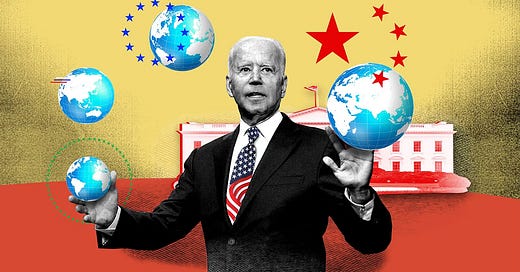Root Canal
US foreign policy seems to be utterly irrational, killed senior Hamas leader escalates conflict, how Australia joined the US-led invasion of Iraq
UPDATE: On the surface, US foreign policy seems to be utterly irrational. The US gets into one disastrous war after another -- Afghanistan, Iraq, Syria, Libya, Ukraine, and Gaza. In recent days, the US stands globally isolated in its support of Israel’s genocidal actions against the Palestinians, voting against a UN General Assembly resolution for a Gaz…




